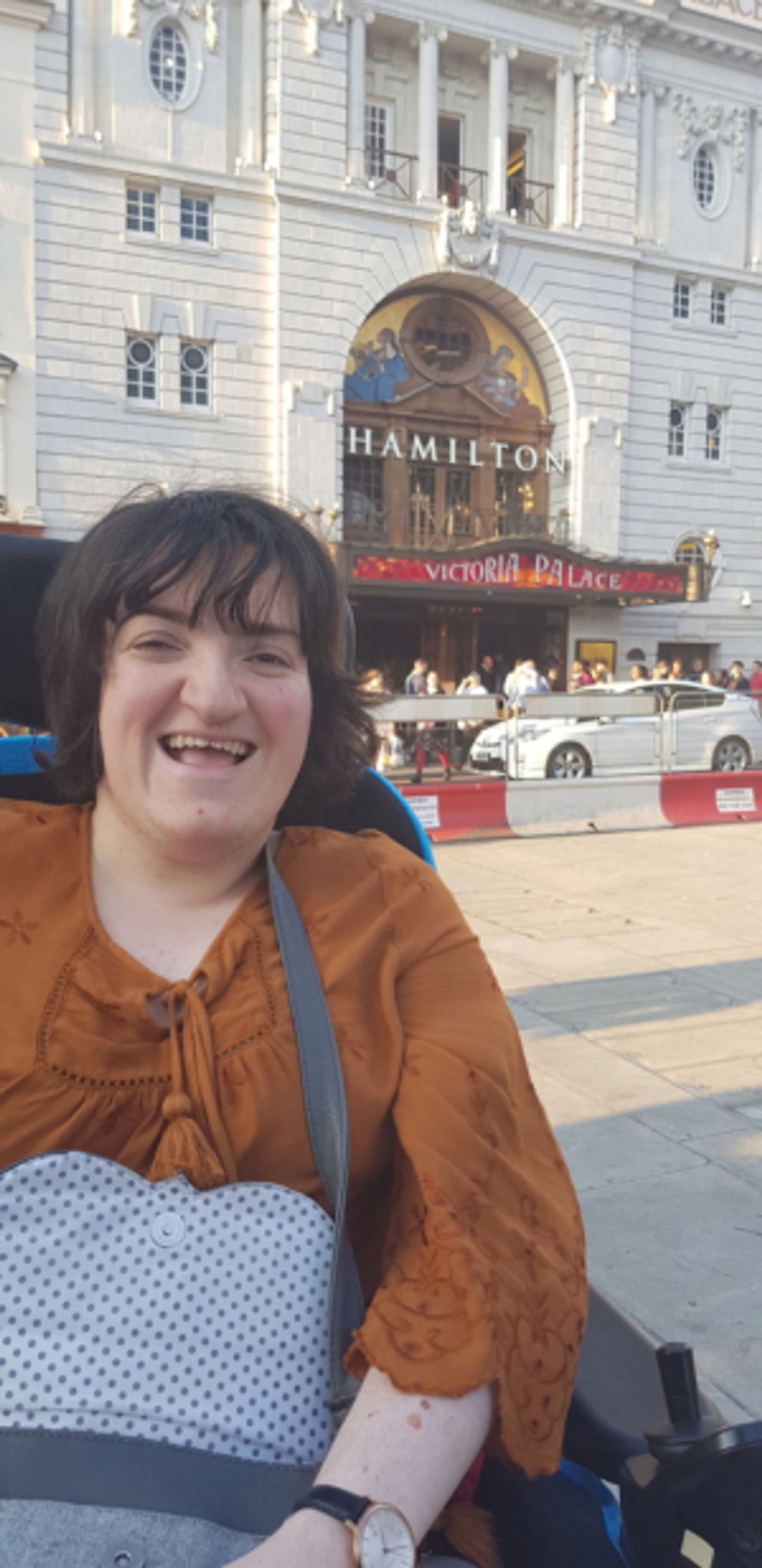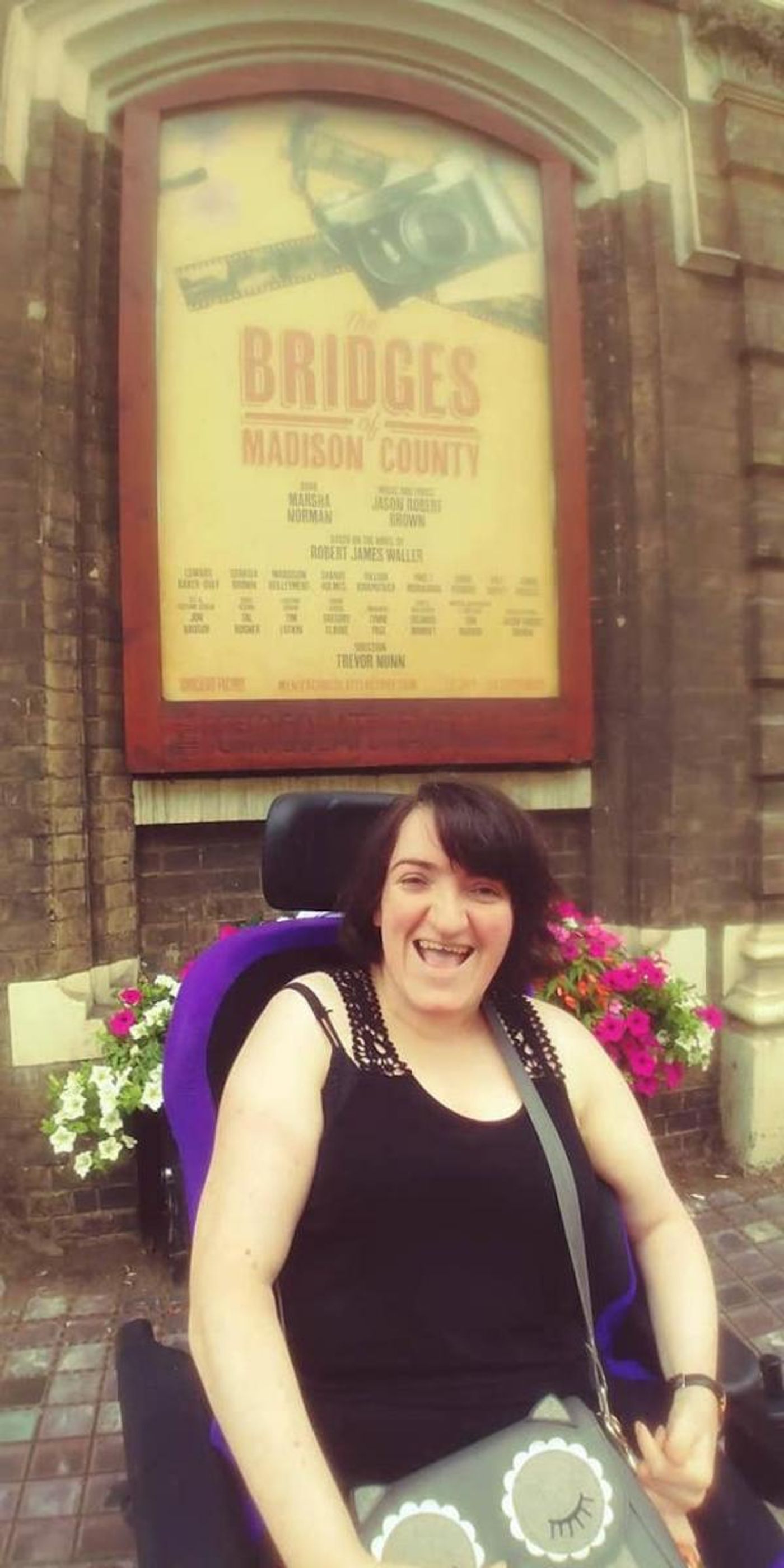Access In Theatre: What It Means and Which Venues Excel

at the Victoria Palace Theatre
We are so excited to debut our Most Accessible Theatre category in the 2019 BroadwayWorld UK Awards! Here, BWW reviewer Kerrie Nicholson explains what access means to her.
Put simply, "access" in theatre applies to everything a theatre does and has in place in order to welcome those of us with additional needs. It encompasses every element of the process: booking tickets, when you arrive, during the show and as you leave.
It's a massively broad and intricate term, which is important as theatre needs to cater to audiences with people of all kinds of access requirements. For myself, I have a physical disability known as Cerebral Palsy which means, among other things, that I'm a wheelchair user.
That in itself means going to the theatre throws up a whole range of logistical issues that I often believe non-disabled theatregoers take for granted: I often have to attend matinee performances only due to my personal assistant's shift times, I don't have my pick of the entire theatre as to where I sit, using a different entrance and thus missing out on seeing the cast boards at the vast majority of West End theatres, and so on.
Great access provisions can make a theatre visit even more memorable for all the right reasons, and make the industry more inclusive!
Book tickets
Most theatres have a dedicated Access phone line that disabled patrons can ring to book their tickets, and this is often the best way to ensure you're able to get the tickets you need as you can discuss your requirements with staff - like whether you need to stay in your chair, like I do, or transfer to a theatre seat.
The downside with this can be a long wait time, or not being able to get through at all, which can be incredibly stressful when you know your choice of seat/dates might already be limited, or star casting leads to high demand!
I often find it easier to email the theatre ahead of the call with a choice of dates to enquire about availability, so you know what you'll be aiming for and working with. Some London theatres, namely the Palace Theatre and Trafalgar Studios, allow access patrons to email in, and will reserve the chosen tickets for a set time so you're able to call up and pay for them at a time more convenient for you. I think Hamilton's system for access patrons is also great: you fill in a form with a set of dates and requirements, and they will either phone or email you in a few days to go ahead with the booking.

The Bridges of Madison County
at Menier Chocolate Factory
Where I'd like to see practice get better across the board for us is being able to choose and book our seats online, just like patrons without access needs. I recently had an absolute nightmare trying to book a show at the Dominion, where, being on their Access List, I am in theory able to book online, but every single date I was choosing was coming up as unavailable, so I ended up needing to call the box office anyway, and they did have the date I wanted to begin with.
Access Lists and ticket pricing
We all know that, however much we love it, going to the theatre is an expensive hobby. When you have access needs, costs can mount up even more when you factor in travel or, like myself, you attend with a companion.
That's when Access Lists can be really helpful: a set of forms you can download from the theatre website or request by email and phone. You fill in your details, including your access requirements, and send these back to the theatre. Your details will then be on file when you want to make a booking, so the whole process takes less time.
Most theatres will have a set price they charge for Access tickets, as well as for the companion - usually half-price. I've spent a lot more of my time at smaller, off-West End venues recently because it works out cheaper, and try when I can to see more touring productions.
Another tip from personal experience: if you're in London, try booking your next theatre trip while you're there if you have time by going directly to the box office - I was once charged more money for exactly the same seats the next time I booked over the phone...
The buildings and seating options
Due to their age, many theatres are listed buildings, which means they are protected from demolition and major alterations. This limits those of us with access needs because we have no choice about where we sit, and, in the case of my disability, are unable to use the standard disabled toilets as I need a hoist (this means I often have to take a detour before the show if I need the bathroom).
Seating for Access patrons is usually in the rear of stalls, or front row dress circle for the big West End shows. If you want to sit closer up, I can't recommend the Menier Chocolate Factory, Trafalgar Studios, Donmar Warehouse, the Almeida or Southwark Playhouse highly enough! And the Old Vic is doing brilliant work to improve their access. Regional theatre is also a great shout (Chichester Festival Theatre is a particular favourite of mine), as they often have many more seats than the West End.
.jpg?format=auto&width=1400)
The Deep Blue Sea at
Chichester Festival Theatre
Unfortunately, there are some venues, like the Ambassadors, that have no disabled access. It's incredibly disheartening having to miss out because of something you have no control over...
At the show
When you arrive at the theatre, make yourselves known out front and you'll generally be waiting a few moments for the Access Host to come and escort you to your seats. They should make sure you're comfortable and will ask if they can get you anything, and will come back to check on you during interval and see you out at show end.
I love when I've become a regular at certain shows and the staff are just as happy to see you as you are to be there - again, I must shout out to the staff at the Palace, who are some of the most warm, fun, good-natured and generous Front Of House staff I've come across. Same goes for Queen's - nothing is ever too much trouble!
Good practice here is all about making everyone feel welcome, irrespective of their needs, and while I personally have never had any majorly negative experiences with staff during shows, I always remember one occasion where an usher has been perhaps too eager to help; it got a little overwhelming having to repeatedly say "No thanks, I'm fine".
My advice here to other theatregoers with access needs: remember you have just as much right to be there as everyone else. If you need help, don't be afraid to ask for it.
The biggest thing I'd like to see change in the industry is more open dialogue between theatre staff at all levels and patrons like myself as to what they are doing and can do to make access better. It'll help raise awareness, and it makes such a difference to us knowing our voices are heard!
Do you have any experiences to share about theatre accessibility? Tweet us @BroadwayWorldUK
Nominate your favourite shows, performers and theatres for the 2019 BroadwayWorld UK Awards here
Videos

